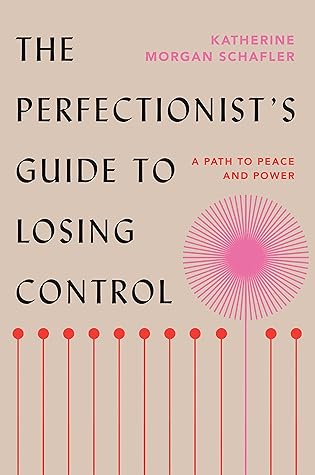More on this book
Community
Kindle Notes & Highlights
Read between
June 25 - July 1, 2025
Perfectionists are intelligent people who understand that everything can’t work out perfectly all the time. What they sometimes have trouble with is understanding why they still feel so disappointed by imperfection in the face of that intellectual concession. What they sometimes wonder about is why they feel so compelled to endlessly strive. What they’re sometimes confused by is what they’re striving for in the first place. What they often question is why they can’t just enjoy relaxing “like a normal person.” What they want to know is who they are outside of what they accomplish.
This is because they carry within them a heightened sense of the ever popular “Who do you think you are?” insecurity chip.
Unlike classic perfectionists, who can unintentionally exude an air of distance and superiority, Parisian perfectionists operate in a way that celebrates and invites a myriad of different types of meaningful relationships into their lives.
The work is not about fixing anything, getting rid of anything, or correcting anything; it’s about connection.
Healthy means safe; healthy means empowered; healthy means reflective of your authentic self. Healthy does not mean happy all the time.
“The promotion-focused are engaged by inspirational role models, the prevention-focused by cautionary tales.”[20]
They are the rule, not the exception. Life is not static at all. It’s okay, natural, and healthy to encounter moments during which your life is eclipsed by something, internally or externally—perhaps both. This eclipsing, which one could consider the opposite of balance, occurs over and over again in our ever-fluid, never-static lives.
A close friend of mine once shared a legal-industry saying with me, which was that making partner at a law firm is like a pie-eating contest where the prize is more pie. Balance is a lot like that. The more tasks you’re able to successfully balance, the more bandwidth you create to, drumroll . . . balance more tasks.
Balance is not a primer for being who you are. For most women, and damn sure for perfectionists of every type, living authentically looks on the surface like the opposite of balance. The most fulfilled women I know are terrible at being balanced, and I mean, truly, iconically awful at it.
You can be angry and full of love. You can be grateful and want more. You do not need to balance any of this out.
You don’t earn your way to joy. Joy is a birthright. So is love, freedom, dignity, and connection. As the inimitable James Baldwin said, “Your crown has been bought and paid for. All you have to do is wear it.”
You accept the event and reject the impact. You say some version of “Yes, that happened but I’m fine.” The splitting is a math of sorts, a long division for trauma. Power lies in accepting that while you can’t control what you feel or the fact that the past impacted you, what happens next is entirely up to you.
“Differences in overall suicide rates across cities, states and regions in the United States are best explained not by differences in mental health, suicide ideation, or even suicide attempts, but by availability of firearms. Many suicides are impulsive, and the urge to die fades away. Firearms are a swift and lethal method of suicide with a high case-fatality rate.”[26]
“You have to learn how to live in the gray.”
You can’t heal or grow without self-compassion. In the absence of self-compassion, the best you can hope for is stagnation.
You have to initiate the celebration of the middle of the process yourself. This is how adaptive perfectionists live—inviting joy, connection, support, and gratitude into their lives during the process, not just after the win.
A self-compassionate response would involve giving yourself permission to feel disappointed while also acknowledging that “disappointed” is not the only thing you feel. Perfectionists waste so much energy trying to churn their disappointment into something else. We keep asking, “How can I get rid of my disappointment?” The better question is “What else do I also feel?”
People want to show up for you, so when they say, “Let me know if I can do anything,” let them know. Tangible support, especially when it’s consistent and scheduled, can do wonders for your mental health.
Exploit moments of your highest functioning to broaden your repertoire of positive coping mechanisms and align yourself with support in every color. Having support in place, even if you never use it, can be curative in and of itself.
Writer, activist, and founder of The Embodiment Institute, Prentis Hemphill, describes a boundary as “the distance at which I can love you and me simultaneously.”
This generic-at-best formula for satisfaction leads to depression for one thing, and it also leads women to conflate being selfish with experiencing pleasure: “Well, it made me feel good, so it was selfish.” No. It made you feel good, so it was pleasurable. The more you deny yourself access to pleasure, the less you can access your instincts about what you need and when you need it.
Healing is not about figuring out what to do; it doesn’t matter if you know what to do if you don’t trust yourself to do it. Healing is about learning to trust yourself.
Everything you need to be present, you already have. Everything you need to be powerful, you already have. Everything you need to enjoy your life, you already have.


